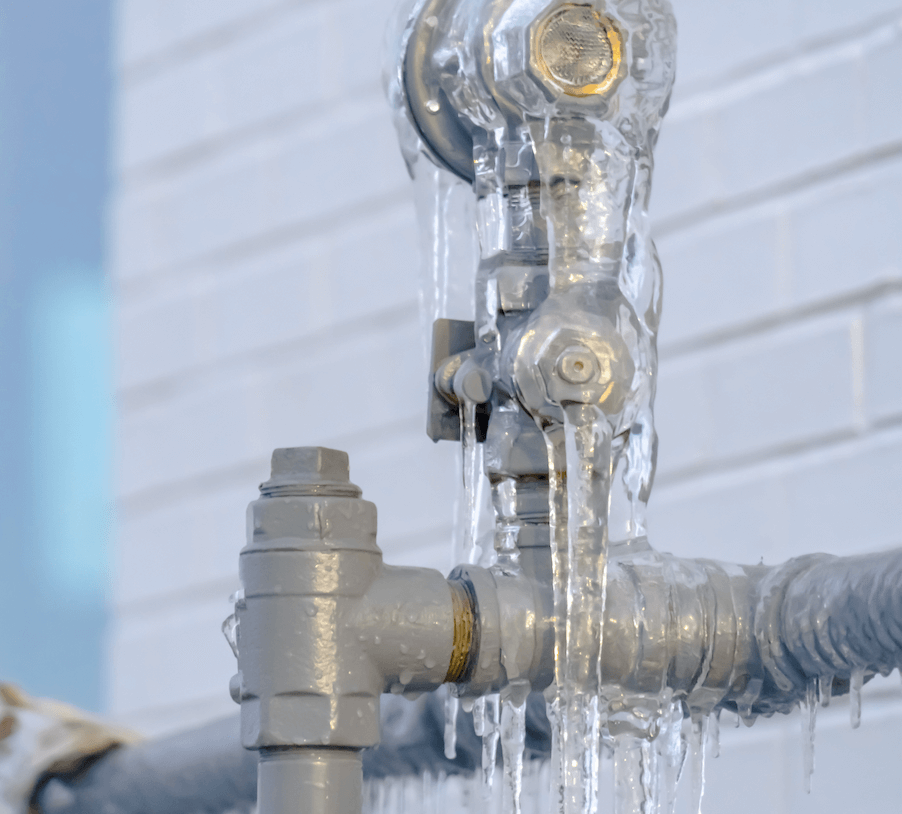Tips to Defend Plumbing System from Cold Weather: Critical Strategies
Tips to Defend Plumbing System from Cold Weather: Critical Strategies
Blog Article
What are your ideas with regards to How To Avoid Freezing Pipes?

Winter can damage your plumbing, specifically by freezing pipes. Here's just how to avoid it from happening and what to do if it does.
Intro
As temperatures decline, the risk of icy pipelines increases, potentially bring about costly repair work and water damages. Recognizing how to avoid frozen pipes is important for house owners in cool climates.
Comprehending Icy Pipelines
What causes pipes to freeze?
Pipelines freeze when subjected to temperatures listed below 32 ° F (0 ° C) for expanded durations. As water inside the pipelines freezes, it expands, putting pressure on the pipe wall surfaces and possibly causing them to break.
Risks and problems
Frozen pipes can lead to water interruptions, home damages, and expensive repair services. Ruptured pipes can flood homes and create extensive structural damage.
Indications of Frozen Piping
Identifying icy pipelines early can stop them from breaking.
Exactly how to recognize frozen pipelines
Search for reduced water flow from faucets, uncommon odors or sounds from pipes, and noticeable frost on subjected pipelines.
Avoidance Tips
Shielding susceptible pipelines
Cover pipelines in insulation sleeves or utilize heat tape to shield them from freezing temperatures. Concentrate on pipelines in unheated or exterior locations of the home.
Heating methods
Maintain interior areas properly heated up, specifically locations with pipes. Open up cabinet doors to enable warm air to flow around pipes under sinks.
Shielding Outdoor Pipes
Garden hoses and outside faucets
Separate and drain pipes yard tubes before winter season. Set up frost-proof spigots or cover exterior taps with shielded caps.
What to Do If Your Pipelines Freeze
Immediate activities to take
If you believe frozen pipes, keep taps open to eliminate pressure as the ice thaws. Utilize a hairdryer or towels taken in hot water to thaw pipelines slowly.
Long-Term Solutions
Architectural modifications
Take into consideration rerouting pipes far from exterior wall surfaces or unheated locations. Add additional insulation to attic rooms, basements, and crawl spaces.
Updating insulation
Invest in top notch insulation for pipelines, attics, and wall surfaces. Correct insulation helps preserve constant temperature levels and minimizes the threat of icy pipes.
Conclusion
Preventing icy pipes requires aggressive procedures and quick responses. By recognizing the causes, signs, and safety nets, property owners can protect their pipes during winter.
Helpful Tips to Prevent Frozen Pipes this Winter
UNDERSTANDING THE BASICS: WHY PIPES FREEZE AND WHY IT’S A PROBLEM
Water freezing inside pipes is common during the winter months, but understanding why pipes freeze, and the potential problems it can cause is crucial in preventing such incidents. This section will delve into the basics of why pipes freeze and the associated problems that may arise.
THE SCIENCE BEHIND FROZEN PIPES
When water reaches freezing temperatures, it undergoes a physical transformation and solidifies into ice. This expansion of water as it freezes is the primary reason pipes can burst. As the water inside the pipe freezes, it expands, creating immense pressure on the walls. If the pressure becomes too great, the pipe can crack or rupture, leading to leaks and water damage.
FACTORS THAT CONTRIBUTE TO PIPE FREEZING
Low Temperatures: Extremely cold weather, especially below freezing, increases the risk of pipes freezing. Uninsulated or Poorly Insulated Pipes: Pipes located in unheated areas, such as basements, crawl spaces, or attics, are more prone to freezing. Insufficient insulation or lack of insulation altogether exacerbates the problem. Exterior Wall Exposure: Pipes running along exterior walls are susceptible to freezing as they encounter colder temperatures outside. Lack of Heating or Temperature Regulation: Inadequate heating or inconsistent temperature control in your home can contribute to frozen pipes. PROBLEMS CAUSED BY FROZEN PIPES
- Pipe Bursting: As mentioned earlier, the expansion of water as it freezes can cause pipes to burst, resulting in significant water damage.
- Water Damage: When pipes burst, it can lead to flooding and water damage to your property, including walls, ceilings, flooring, and personal belongings.
- Structural Damage: Prolonged exposure to water from burst pipes can compromise the structural integrity of your home, leading to costly repairs.
- Mold and Mildew Growth: Excess moisture from water damage can create a favorable environment for mold and mildew growth, posing health risks to occupants.
- Disrupted Water Supply: Frozen pipes can also result in a complete or partial loss of water supply until the issue is resolved.
WHY CERTAIN PIPES ARE MORE PRONE TO FREEZING
- Location: Pipes located in unheated or poorly insulated areas, such as basements, crawl spaces, attics, or exterior walls, are at higher risk of freezing.
- Exterior Pipes: Outdoor pipes, such as those used for irrigation or exposed plumbing, are particularly vulnerable to freezing as they are directly exposed to the elements.
- Supply Lines: Pipes that carry water from the main water supply into your home, including the main water line, are critical to protect as freezing in these lines can affect your entire plumbing system.
- Underground Pipes: Pipes buried underground, such as those connected to sprinkler systems or outdoor faucets, can be susceptible to freezing if not properly insulated.
https://busybusy.com/blog/helpful-tips-to-prevent-frozen-pipes-this-winter/

Do you enjoy reading up on Winter Plumbing Precautions: Preventing Frozen Pipes? Create feedback down the page. We would be happy to hear your reactions about this write-up. We hope to see you back again soon. Loved our post? Please quickly share it. Let other people discover it. Thanks a lot for taking the time to read it.
Schedule Free Estimate Report this page